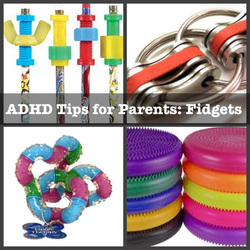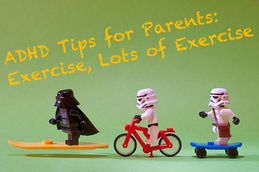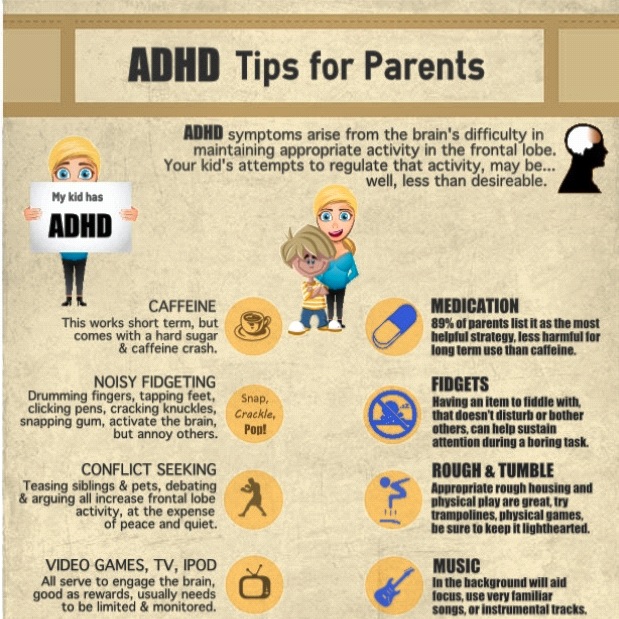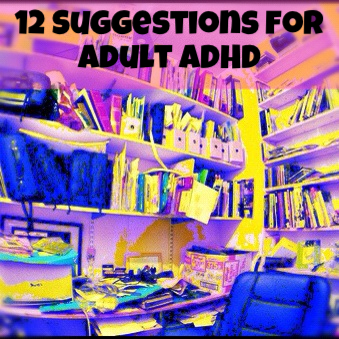  This is my second post in the ADHD Tips for Parents series. I started off by posting an ADHD Tips Infographic that offered alternatives to ADHD habits that are unsafe, unhealthy or simply annoying to others. The ADHD brain tends to have an understimulated frontal lobe, where decision making, planning, and organizing happens. People with ADHD naturally choose activities and habits to help stimulate that area of the brain. Noisy fidgeting is very common, things like tapping feet, clicking pens, cracking knuckles, and tends to irritate others. CONTINUE READING (Photo from Top Left: Pencil Fidgets by Abilitations; The Ultimate Fidget by Sensory University; Therapy Tangle by Tangle Creations; Balance Cushion by Isokinetics) What is appropriate fidgeting? The book Fidget to Focus by Roland Rotz & Sarah Wright gives a detailed strategy for using appropriate fidget strategies to manage ADHD symptoms. Fidgeting is obviously helpful for the ADHD brain, what is important is to make sure that it is appropriate fidgeting. Appropriate strategies, according to Rotz & Wright, are ways of fidgeting that do not bother other people, and do not distract from the main task at hand. For example, a child or college student may be able to focus better while playing with a toy or object, but if it takes away from a writing assignment, it is not an appropriate strategy. However, background music, that is either very familiar or without lyrics, might help the child focus on the writing assignment. How to choose appropriate fidgets
Up Next in the ADHD Tips for Parents Series:
|
Nikki Schwartz,
|





 RSS Feed
RSS Feed
